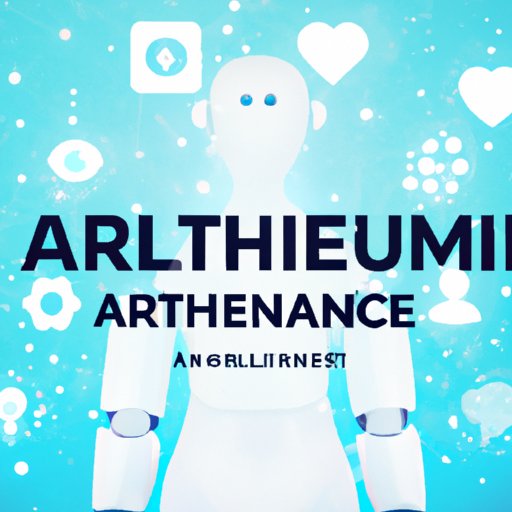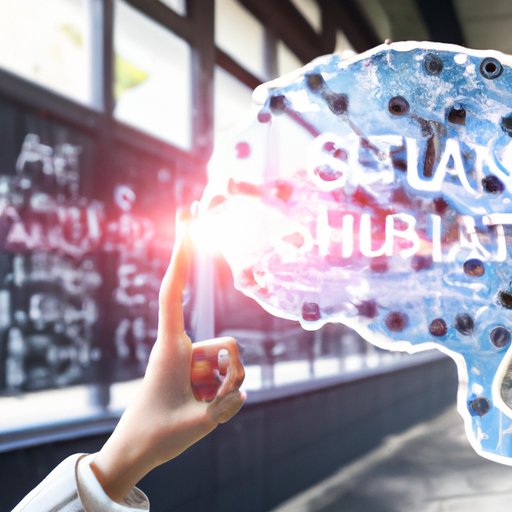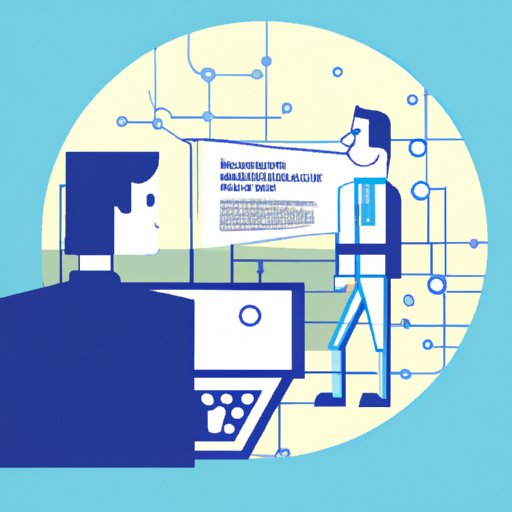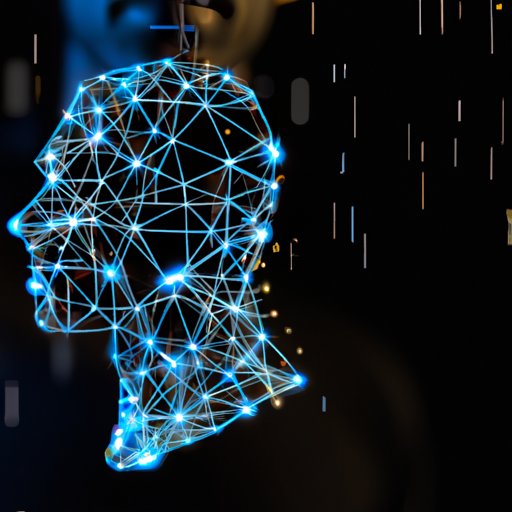Introduction
Artificial intelligence (AI) is a rapidly developing field that has the potential to revolutionize many aspects of our lives. AI is defined as “the ability of a computer program or a machine to think and learn” (Oxford Languages). As AI technology advances, there is both excitement and apprehension about its potential impact on society. In this article, we will explore the potential benefits and challenges of AI and how it could affect healthcare, education, business, transportation, job creation, and ethical implications.

Exploring the Benefits of AI in Healthcare
AI has the potential to revolutionize healthcare by improving diagnosis, streamlining patient care, and enhancing research capabilities. According to a study from the University of Oxford, “AI-based systems have been shown to be more accurate than humans in diagnosing certain medical conditions such as skin cancer and diabetic retinopathy.” This means that AI can help doctors make more accurate diagnoses, leading to better patient outcomes. Additionally, AI can help streamline patient care by automating administrative tasks such as scheduling appointments, ordering tests, and managing medical records. Finally, AI can be used to enhance research capabilities by helping scientists analyze large datasets and discover new insights.

Examining the Impact of AI on Education
AI has the potential to transform education by automating administrative tasks, improving access to information, and providing personalized learning opportunities. Automation of administrative tasks such as grading papers and tracking attendance can free up time for teachers to focus on instruction. AI can also help improve access to information by providing students with personalized educational content that is tailored to their specific needs. Finally, AI can provide personalized learning opportunities by using data to understand individual student’s strengths and weaknesses and providing customized instruction.
Analyzing the Role of AI in Business
AI has the potential to improve business operations by increasing efficiency, enhancing decision making, and improving customer experience. AI can help increase efficiency by automating mundane tasks such as data entry and analysis. Additionally, AI can help enhance decision making by providing businesses with data-driven insights. Finally, AI can help improve customer experience by providing personalized recommendations and predictive analytics.
Investigating the Use of AI in Transportation
AI has the potential to revolutionize transportation by enabling autonomous vehicles, improving traffic management, and reducing transportation costs. Autonomous vehicles are self-driving cars that use AI to navigate roads without the need for a human driver. AI can also be used to improve traffic management by optimizing routes, predicting traffic patterns, and providing real-time updates. Finally, AI can be used to reduce transportation costs by automating logistics and routing.

Investigating the Potential for AI to Create Jobs
Many people worry that AI will lead to job loss, but it could also create new jobs. AI can automate low-skill tasks, freeing up workers to focus on higher-level positions. Additionally, AI can increase productivity by allowing businesses to do more with less, creating more demand for labor. Finally, AI can create new jobs in fields such as AI engineering, data analysis, and software development.
Assessing the Ethical Implications of Artificial Intelligence
As AI technology advances, it is important to consider the ethical implications of using this technology. There are concerns about privacy, as AI algorithms can collect and store vast amounts of personal data. There are also concerns about unintended consequences, as AI systems can make decisions without the oversight of a human. Finally, there is a lack of human oversight when it comes to regulating AI, which raises questions about accountability and responsibility.
Conclusion
AI has the potential to revolutionize many aspects of our lives, from healthcare to transportation. While there are many potential benefits, there are also challenges that must be addressed before AI can be fully embraced. It is clear that further investigation is needed to understand the implications of AI and how best to utilize this technology for the benefit of society.
(Note: Is this article not meeting your expectations? Do you have knowledge or insights to share? Unlock new opportunities and expand your reach by joining our authors team. Click Registration to join us and share your expertise with our readers.)
